Dr. Russell named Harvard Macy Fellow for 2021-2022 class
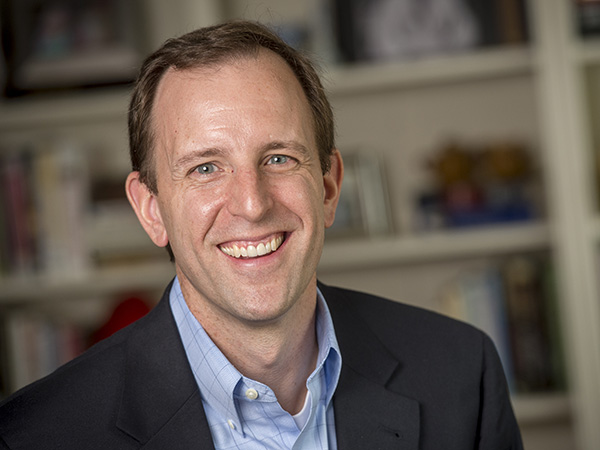 Stephen Russell, M.D., professor in the Departments of Medicine and Pediatrics, has been named to the 2021-2022 class of the Harvard Macy Institute Art Museum-based Health Professions Education Fellowship.
Stephen Russell, M.D., professor in the Departments of Medicine and Pediatrics, has been named to the 2021-2022 class of the Harvard Macy Institute Art Museum-based Health Professions Education Fellowship.
Dr. Karle to retire after 28 years of service to the Department of Pediatrics
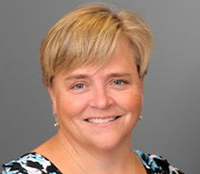 Ginny Karle, M.D., professor in the Division of Neonatology, has retired after 28 years serving the UAB Department of Pediatrics, Children’s of Alabama and the greater Birmingham community.
Ginny Karle, M.D., professor in the Division of Neonatology, has retired after 28 years serving the UAB Department of Pediatrics, Children’s of Alabama and the greater Birmingham community.
Posters from faculty and trainees in the Division of Pediatric Endocrinology and Diabetes receive Presidential Poster Awards at Pediatric Endocrinology Society Annual Meeting
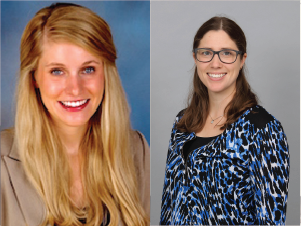 Drs. Margaret Marks and Jessica SchmittSeveral faculty and trainees from the Division of Pediatric Endocrinology and Diabetes presented at the Pediatric Endocrinology Society (PES) meeting held virtually April 30 through May 3, 2021.
Drs. Margaret Marks and Jessica SchmittSeveral faculty and trainees from the Division of Pediatric Endocrinology and Diabetes presented at the Pediatric Endocrinology Society (PES) meeting held virtually April 30 through May 3, 2021.
Two posters presented by members of the division received Presidential Poster Awards and were highlighted in the Presidential Poster Session on April 30.
Read moreOrthodox Easter

Orthodox Easter, also called Greek Easter, is celebrated this Sunday, May 2. It is the most important religious holiday for the world's 300 million Orthodox Christians. In addition to the religious events, food and family is also a big part of the observance.
Happy Easter to those who are celebrating this week.
Mitch
Dr. Jester named chair of Pediatric Affairs Committee for Crohn’s and Colitis Foundation
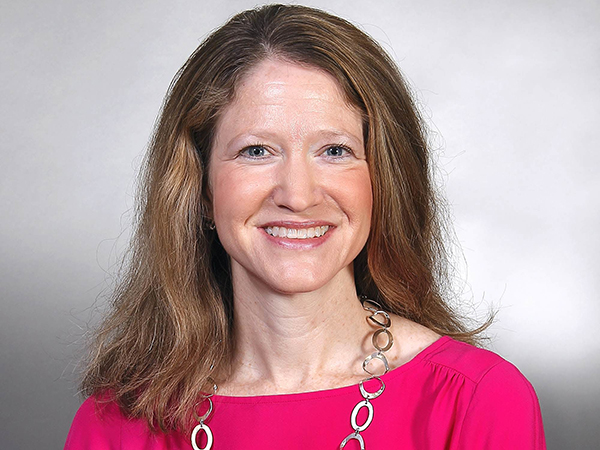 Traci Jester, M.D., associate professor of Pediatric Gastroenterology, Hepatology and Nutrition, has been selected to serve as chair of the Pediatric Affairs Committee of the Crohn’s and Colitis Foundation. The Pediatric Affairs Committee is a subcommittee of the National Scientific Advisory Committee for the Crohn's and Colitis Foundation. The committee is responsible for identifying and creating resources to assist with the educational needs of children and adolescents living with inflammatory bowel disease (IBD).
Traci Jester, M.D., associate professor of Pediatric Gastroenterology, Hepatology and Nutrition, has been selected to serve as chair of the Pediatric Affairs Committee of the Crohn’s and Colitis Foundation. The Pediatric Affairs Committee is a subcommittee of the National Scientific Advisory Committee for the Crohn's and Colitis Foundation. The committee is responsible for identifying and creating resources to assist with the educational needs of children and adolescents living with inflammatory bowel disease (IBD).
Hightower named a recipient of the 2021 UAB Samuel B. Barker Award for Excellence in Graduate Studies
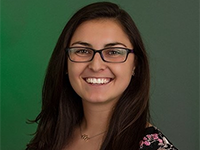 Rylie Hightower, BSN, was named one of 10 recipients of the 2021 UAB Samuel B. Barker Award for Excellence in Graduate Studies. This award, named for Dr. Samuel Booth Barker the first graduate dean at UAB, is given each spring to graduate students who represent the highest level of student achievement in the UAB graduate program.
Rylie Hightower, BSN, was named one of 10 recipients of the 2021 UAB Samuel B. Barker Award for Excellence in Graduate Studies. This award, named for Dr. Samuel Booth Barker the first graduate dean at UAB, is given each spring to graduate students who represent the highest level of student achievement in the UAB graduate program.
April is National Volunteer Month
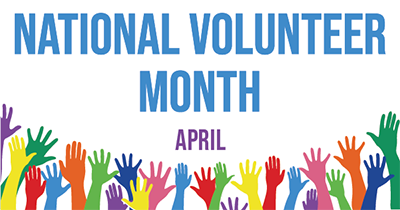
National Volunteer Month is held each April to promote and celebrate volunteerism. In addition this year, April 18-24, 2021 was National Volunteer Week which gave us an opportunity to recognize and appreciate those who serve our community. The Department of Pediatrics at UAB and Children’s’ of Alabama are committed to community engagement and the further expansion of our community engagement efforts.
Read moreAutism Acceptance in April
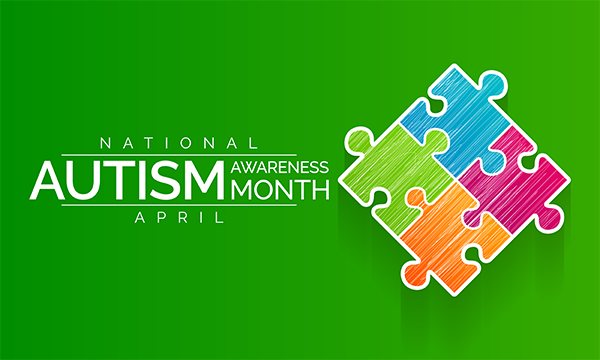
April has been an important and busy month for the Autism Spectrum Disorder (ASD) community for over 50 years, with the initial emphasis on promoting awareness of autism by the Autism Society of America in the 1970s. In recent years, as a reflection of the neurodiversity movement and increased inclusion of self-advocates and family members in the development of these initiatives, the emphasis of April has shifted to acceptance of autism. However, this perspective has been voiced for much longer than it has been embraced and implemented. Although this may seem a subtle distinction, the terminology and semantics are extremely important as we strive to support individuals with ASD and their families using a person-centered approach.
Read moreDr. CaJacob announced as clinical director for Pediatric Allergy and Immunology
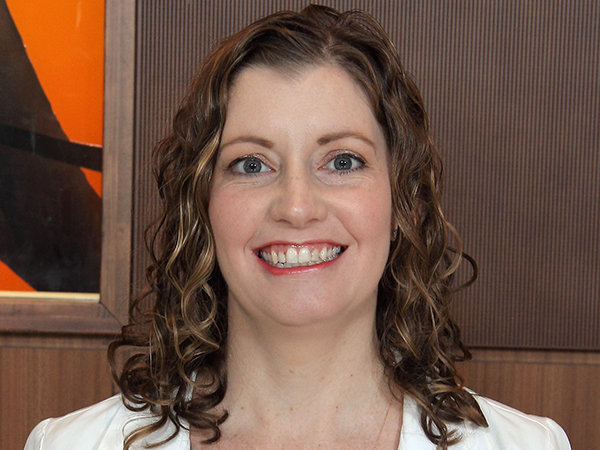 Amy CaJacob, M.D., assistant professor in the Division of Pediatric Allergy and Immunology, has been named the clinical director for the division.
Amy CaJacob, M.D., assistant professor in the Division of Pediatric Allergy and Immunology, has been named the clinical director for the division.
Dr. White elected as chair elect for Section on Simulation and Innovative Learning Methods
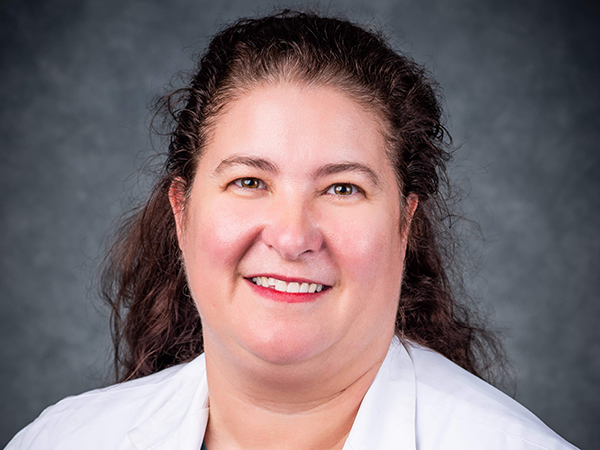 Marjorie Lee White, M.D., professor in the Division of Pediatric Emergency Medicine, has been elected chair elect for the American Academy of Pediatrics Section on Simulation and Innovative Learning Methods (SILM).
Marjorie Lee White, M.D., professor in the Division of Pediatric Emergency Medicine, has been elected chair elect for the American Academy of Pediatrics Section on Simulation and Innovative Learning Methods (SILM).
Dr. Coleman attends 2021 American Academy of Pediatrics Advocacy Conference
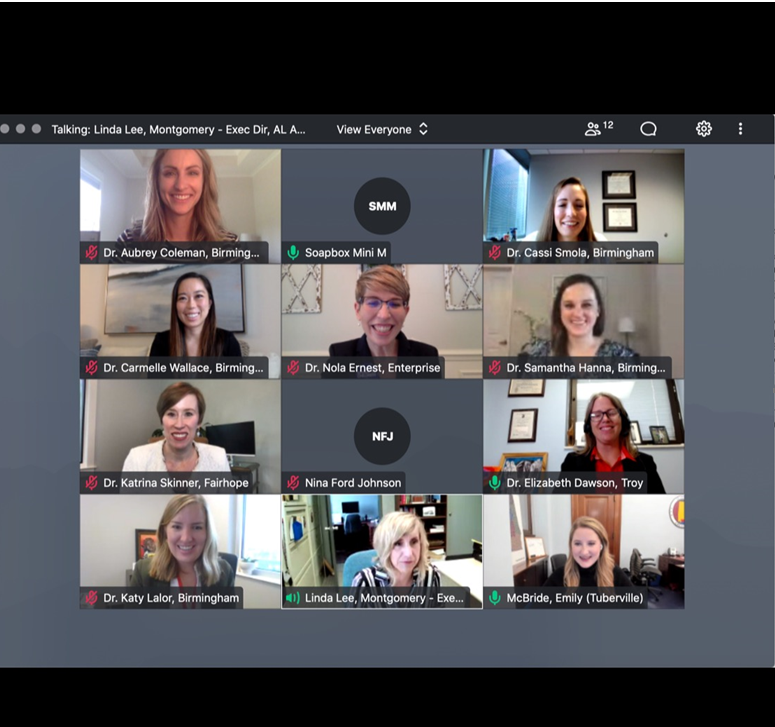
Drs. Hazra and Shukla receive fellow research awards from the Society for Pediatric Research
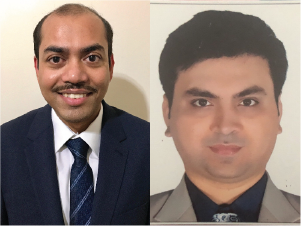 L to R: Snehashis Hazra and Vivek ShuklaSnehashis Hazra, M.D., Third Year Fellow, and Vivek Shukla, M.D., Second Year Fellow, Neonatology, received fellow research awards from the Society of Pediatric Research (SPR) as part of the Pediatric Academic Society (PAS) meeting. These awards are given by the Society for Pediatric Research to honor fellows who are engaged in clinical and basic research and to encourage trainees to pursue careers in academic pediatrics.
L to R: Snehashis Hazra and Vivek ShuklaSnehashis Hazra, M.D., Third Year Fellow, and Vivek Shukla, M.D., Second Year Fellow, Neonatology, received fellow research awards from the Society of Pediatric Research (SPR) as part of the Pediatric Academic Society (PAS) meeting. These awards are given by the Society for Pediatric Research to honor fellows who are engaged in clinical and basic research and to encourage trainees to pursue careers in academic pediatrics.
Dr. Wadhwa accepted into Transdisciplinary Research on Energetics and Cancer (TREC) fellowship
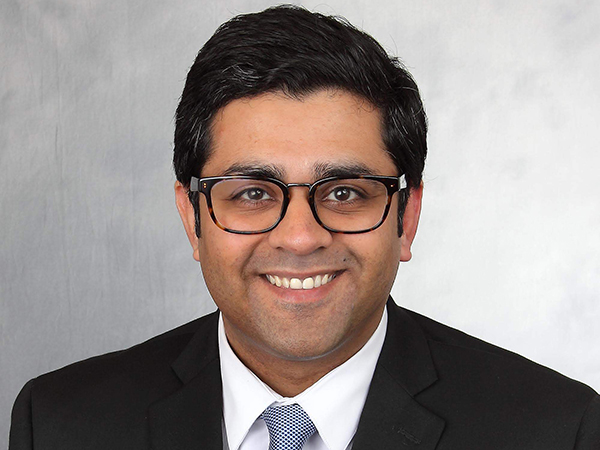 Aman Wadhwa, M.D., instructor in Pediatric Hematology/Oncology, has been accepted into the Transdisciplinary Research on Energetics and Cancer (TREC) Training Workshop 2021 fellowship cohort. The TREC 2021 fellowship cohort consists of an array of researchers from a variety of backgrounds including basic, clinical and population cancer research.
Aman Wadhwa, M.D., instructor in Pediatric Hematology/Oncology, has been accepted into the Transdisciplinary Research on Energetics and Cancer (TREC) Training Workshop 2021 fellowship cohort. The TREC 2021 fellowship cohort consists of an array of researchers from a variety of backgrounds including basic, clinical and population cancer research.
Deaf History Month
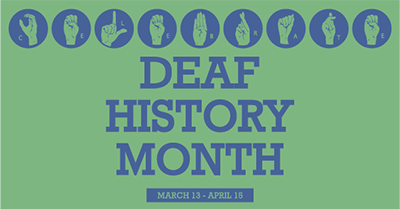
Deaf History Month is celebrated each year from March 13 to April 15 to celebrate and honor the accomplishments of people who are deaf and hard of hearing. The month is celebrated over these dates in recognition of three key events in the history of the deaf community in America.
Read moreRamadan 2021

For practicing Muslims, the evening of Monday, April 12, marks the beginning of Ramadan which continues through May 12. The pillars of Islam include: Declaring belief in one God (Allah), Prayers (Salah); Fasting (Saum); Charity (Zakah) and Pilgrimage (Hajj). Ramadan is the holiest month of the year for Muslims and those who observe, fast from dawn until sunset. Fasting is both physical and spiritual. Charity is also very important in Islam, and even more so during Ramadan. Extra prayers are recited and Muslims are encouraged to read the entire Quran during Ramadan.
To all who are celebrating, may you have a peaceful Ramadan. Ramadan Mubarak.
Mitch
Match 2021
Please join us in welcoming our Pediatrics Intern Class of 2024, our Med-Peds Intern Class of 2025, our Pediatrics-Genetics Intern of 2025, and our Child Neurology Intern Class of 2026! We are so proud to have these incredibly strong, academically talented interns joining our residency programs in June.
Read moreToday is Good Friday

Good Friday commemorates the crucifixion of Jesus Christ. This observance occurs during Holy Week on the Friday before Easter Sunday. In the Christian religion, Holy Week consists of five days of special significance that commemorate the events leading up to the crucifixion and resurrection of Jesus Christ. The week begins with Palm Sunday and is celebrated with a blessing and procession of palms. Maundy Thursday commemorates the Last Supper, and many churches host special services in observance of this day. Observances of this day may also include a foot washing ceremony in remembrance of Jesus washing the feet of his 12 disciples at the Last Supper. Good Friday is observed with a service that is often solemn. Holy Saturday, or Easter Vigil, commemorates the time between the death of Jesus Christ and his resurrection and is usually observed with a service held after sundown. Holy Week concludes with Easter Sunday which celebrates the resurrection of Jesus Christ from the dead. It is the most important holiday on the Christian calendar and is the culmination of the religious period of Lent – a 40-day period of fasting, prayer and sacrifice. Holy Week and Easter symbolize forgiveness, rebirth, and God’s saving power.
To all people, may this be a time for renewal, repair, and reflection. Happy Easter.
Mitch
Pediatric Science Day was a great success
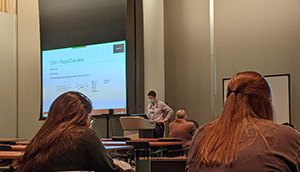 The UAB Department of Pediatrics hosted the 6th Annual Pediatric Science Day last Thursday, March 25 with as an opportunity to illustrate research activities in the department and support collaboration between young investigators. The event included in-person presentations and a simulcast on Zoom for attendees to participate virtually. Presentation topics included clinical research, basic/translational research, clinical case reports, and quality improvement.
The UAB Department of Pediatrics hosted the 6th Annual Pediatric Science Day last Thursday, March 25 with as an opportunity to illustrate research activities in the department and support collaboration between young investigators. The event included in-person presentations and a simulcast on Zoom for attendees to participate virtually. Presentation topics included clinical research, basic/translational research, clinical case reports, and quality improvement.
Bhatia appointed associate editor of Journal of Clinical Oncology
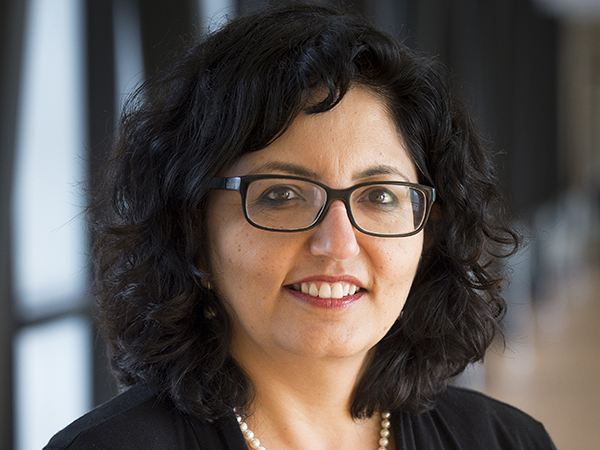 Smita Bhatia, M.D., MPH, professor in the Division of Pediatric Hematology/Oncology, has been appointed an associate editor of the Journal of Clinical Oncology (JCO). In this role, Dr. Bhatia will assist the editor-in-chief in selecting the scientific and editorial content of JCO. She will also oversee and participate in the peer review process. JCO is a premier journal in oncology, with an impact factor of 32.9.
Smita Bhatia, M.D., MPH, professor in the Division of Pediatric Hematology/Oncology, has been appointed an associate editor of the Journal of Clinical Oncology (JCO). In this role, Dr. Bhatia will assist the editor-in-chief in selecting the scientific and editorial content of JCO. She will also oversee and participate in the peer review process. JCO is a premier journal in oncology, with an impact factor of 32.9.
Congratulations Dr. Bhatia!
Chu Education Scholarship- Call for Applications
The Pediatric Fellowship office is seeking applications for the Chu Family Educational Scholarship for Fall 2021. Candidates will be selected on a competitive basis and upon a Review Committee’s analysis of the written application. For the academic year starting in July 2021, one to two candidates will be selected to receive a $5000 scholarship for their chosen educational endeavor.
Applications should be emailed or delivered to Ronda Chandler in the Sergio Stagno Center, 3rd Floor West McWane, no later than Friday, April 16. Scholarship recipients will be announced late May or early June.
Questions? Contact Ann Klasner, M.D. or Ronda Chandler.
Deadline for application: Friday, April 16